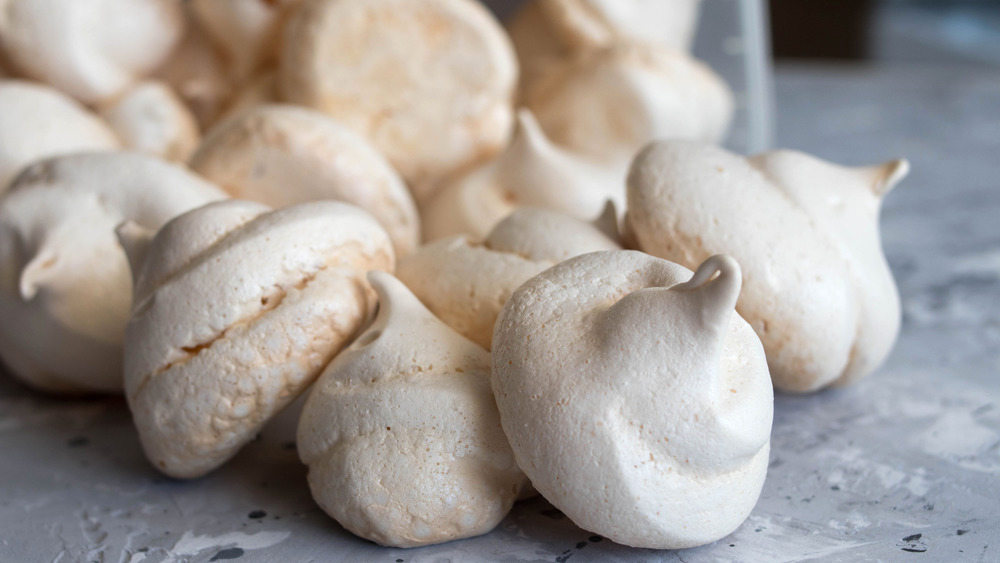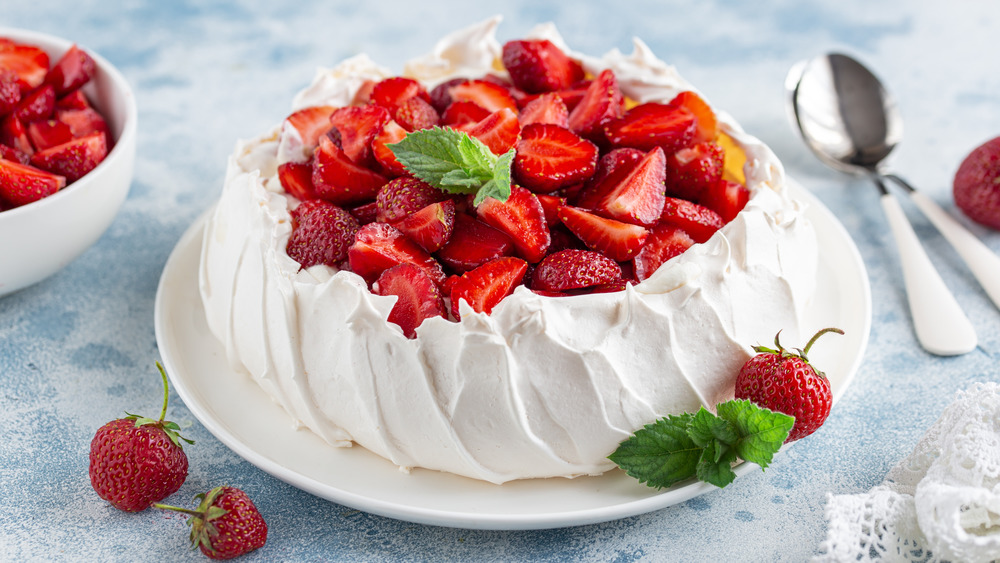The Real Difference Between A Pavlova And Meringue
If you're a fan of meringue but not necessarily an expert on the minute details of the many meringues that can appear with desserts, then the difference between a meringue and a pavlova might not be clear, plus they're even made using very similar methods. In fact, a pavlova is actually a type of meringue, so they are quite similar (via Nigella). Both are made with egg whites that are whipped with sugar until they are airy and foamy. Then they are baked at a low temperature in the oven (via The Flavor Bender).
One minor detail that makes pavlovas different from meringues is that pavlovas call for cornflour or cornstarch to be incorporated into the mixture. Meringues only call for caster sugar to be mixed in. Pavlovas are also faster to bake than typical meringues. That's largely because of their textural difference, which is caused by the shorter bake time too. The addition of cornstarch to pavlovas also helps them achieve their signature texture.
The difference is all about texture
Meringues and pavlovas are essentially baked in the oven at a low temperature, but not necessarily to cook them. Instead, the purpose of baking them is to dry the egg white mixture out. Meringues have a very crisp texture that can crumble between your finger tips. Meringues are also dry all the way through. That's why they have to be baked for a longer period of time to ensure the middle is dry (via Nigella).
Pavlova, on the other hand, is dry and crisp like a meringue on the outside. However, the inside is soft and fluffy akin to a marshmallow. It's a delightfully light and airy dessert that snaps on the outside yet also melts in your mouth thanks to its fluffy interior. Pavlovas are classically topped with a sweetened cream, like chantilly cream, and piled high with sliced fruit (via The Flavor Blender). The toppings make it a truly beautiful display, but the pavlova itself can also be flavored to add more oomph to the dessert.
So, the next time you have a softer meringue, it is likely a pavlova. Traditional meringues, which are usually French meringues, should always have a crispness and be dry all the way through.

